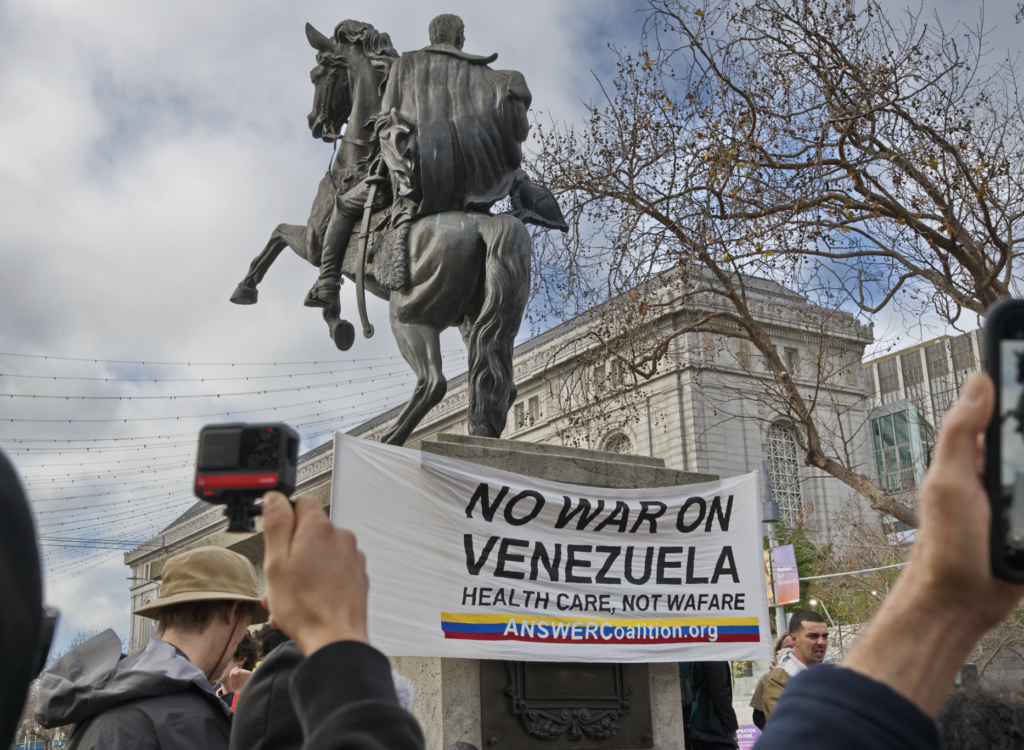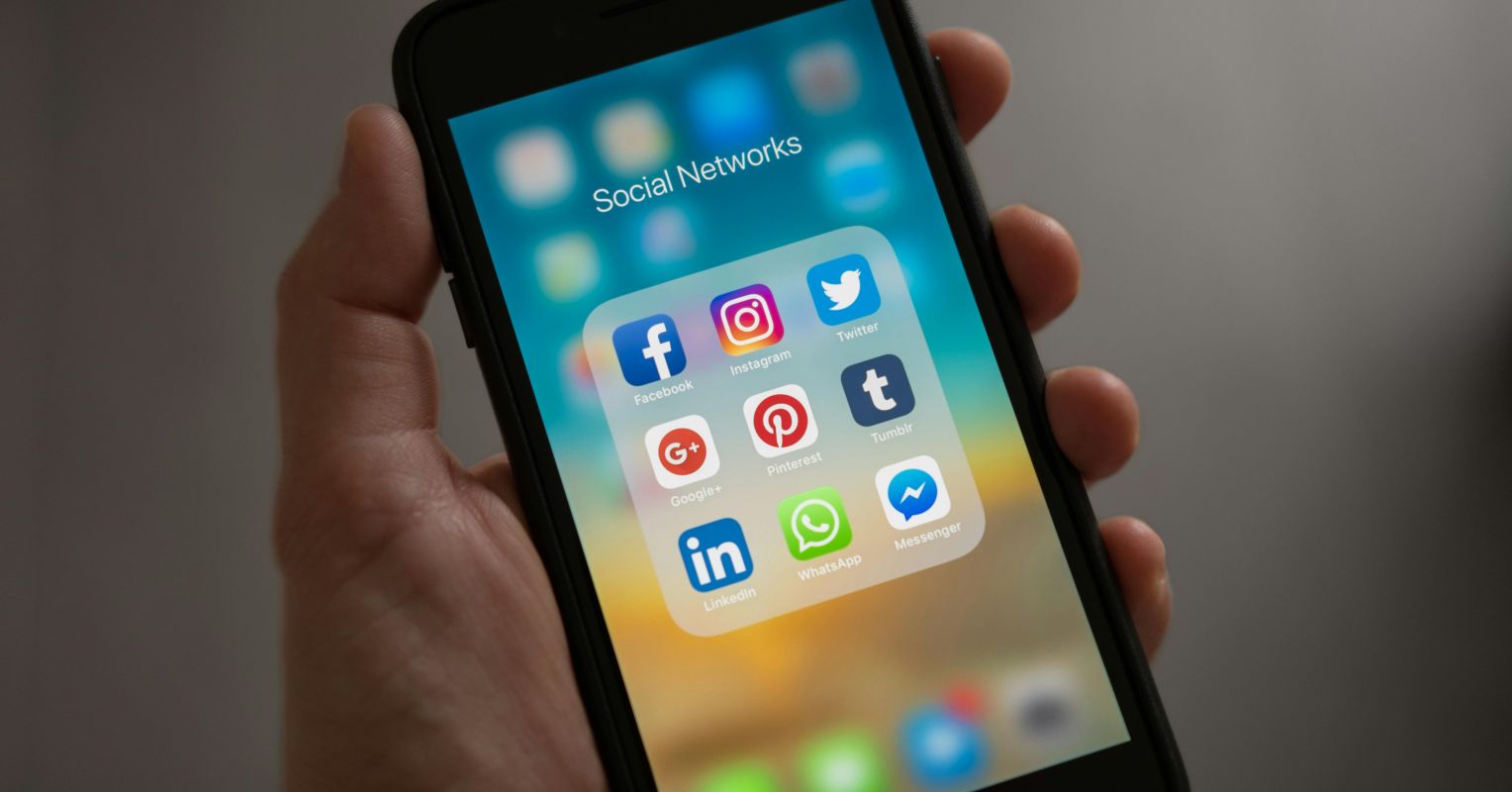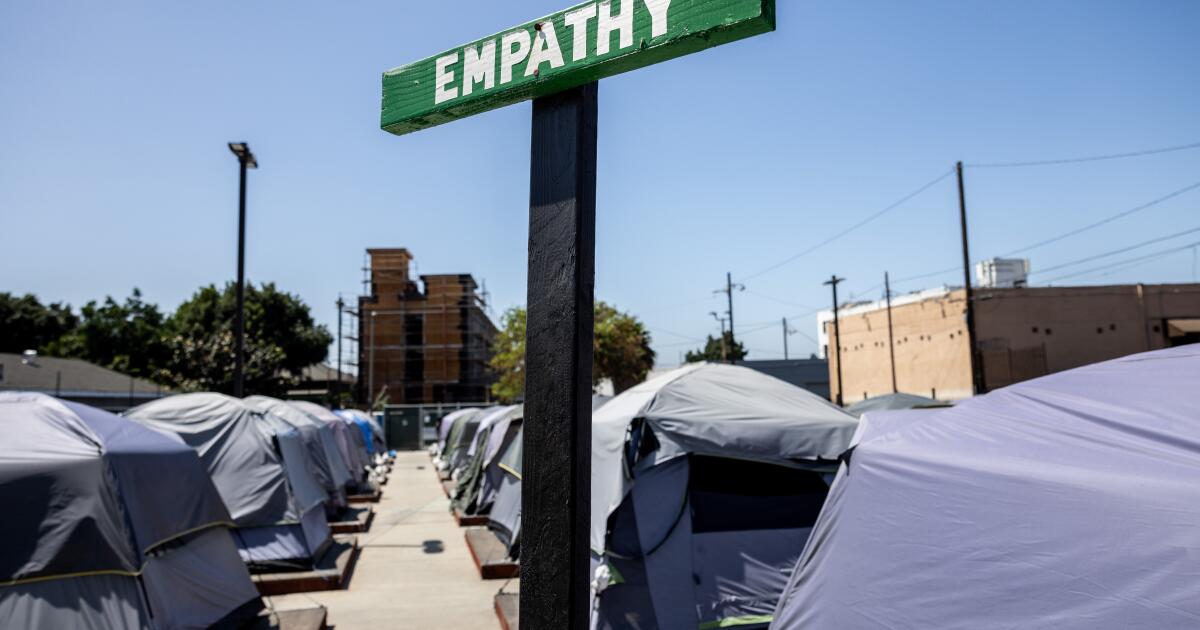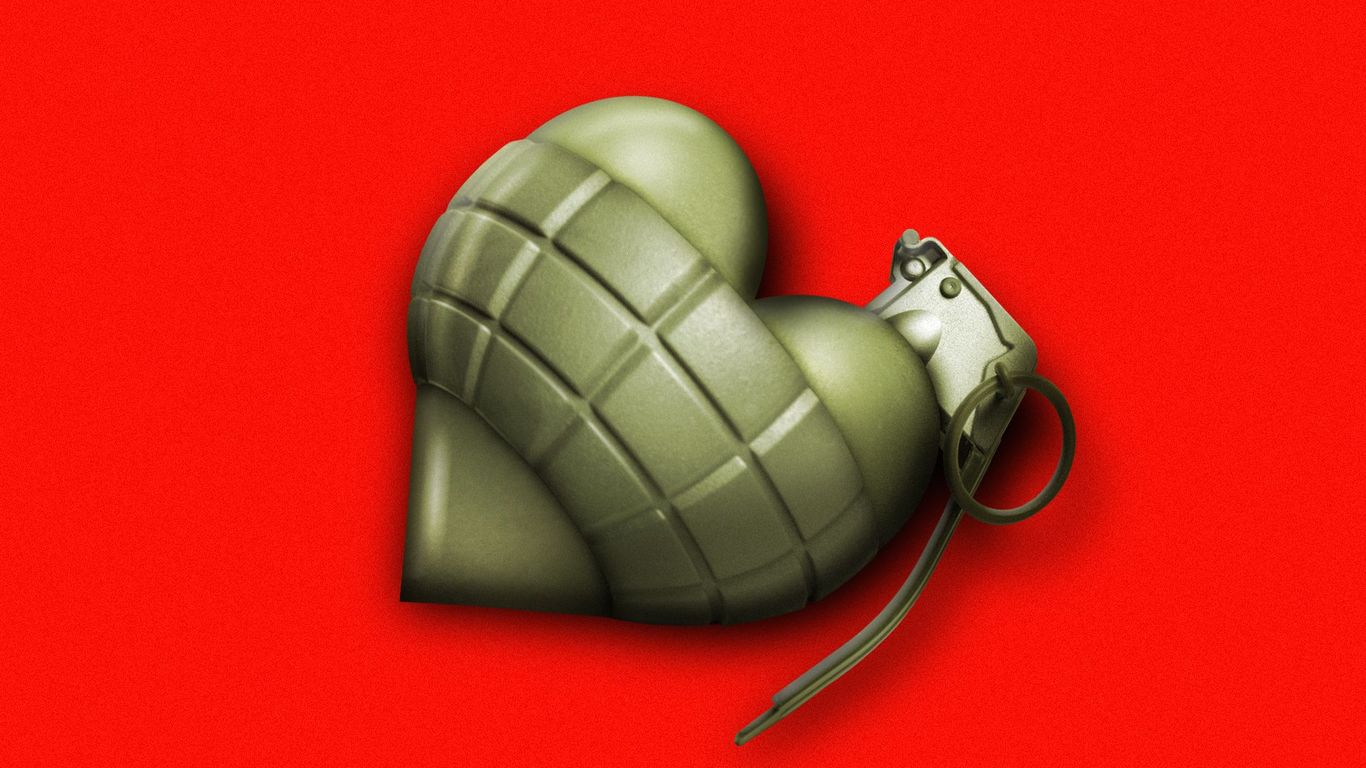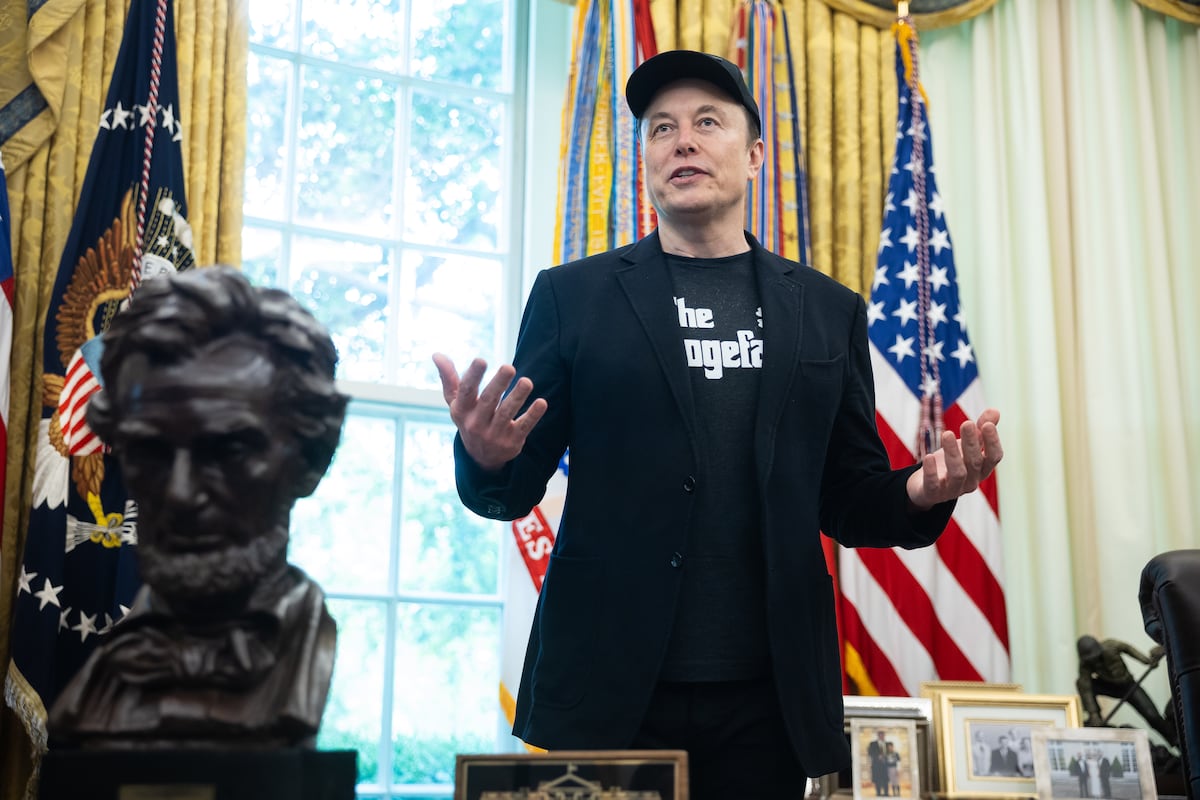#political-polarization
#political-polarization
[ follow ]
#rob-reiner #mental-health #social-media-algorithms #ice-shooting #donald-trump #social-media #civil-unrest
Philosophy
fromThe Conversation
1 week agoWhat we get wrong about forgiveness - a counseling professor unpacks the difference between letting go and making up
Forgiveness is an internal act of releasing ill will separate from reconciliation; reconciliation can be difficult, sometimes inadvisable or dangerous, especially after harm or trauma.
fromwww.theguardian.com
2 days agoCosta Rica heads to polls amid fears of authoritarian turn
Costa Rica heads to the polls on Sunday in an election dominated by increasing insecurity and warnings of an authoritarian turn in a country long seen as a model of liberal democracy in the region. Crime is a big concern for many voters as criminal groups battle to control lucrative cocaine trafficking routes to Europe and the US, casting a shadow on the Central American country famous for its wildlife tourism.
World news
fromPsychology Today
4 days agoHow to Have Better Political Conversations
The principle of intellectual charity is fundamental to constructive political conversations. This principle states that, in any discussion, we should accept the best version of an opponent's ideas, not a distorted version or a "straw man." Exaggeration and distortion of opposing opinions (always present, to some degree, in political debates) have become the standard form of political argument in contemporary America.
Philosophy
LGBT
fromLGBTQ Nation
4 days agoThe far right thinks kids are property, not people. This is the heart of the anti-trans moral panic. - LGBTQ Nation
Right-wing views treat children as parental property, while liberal views recognize children as autonomous human beings with independent identities and needs.
US politics
fromFortune
1 week agoRay Dalio says the U.S. is a 'tinderbox' after the Minneapolis shooting and Trump risks a 'more clear civil war' | Fortune
The United States is at high risk of escalating from severe political and financial stress into violent civil conflict without de-escalatory leadership and systemic reforms.
US politics
fromConsequence
1 week agoJames Cameron on Leaving America for New Zealand: "I'm Not There for Scenery, I'm There for the Sanity"
James Cameron became a New Zealand citizen because he values New Zealand's science-based pandemic response, high vaccination rate, and societal sanity over U.S. polarization.
fromFortune
1 week agoTaylor Swift's political polarization Rorschach Test: why young women love her and young men really don't | Fortune
Taylor Swift's latest album, "The Life of a Showgirl," generated a cultural whirlwind: chart-topping success, social media saturation and frenzied debate over her artistic evolution. Nonetheless, despite this warm reception, opinions on Swift are deeply polarized by party. Democrats are far more likely to view her positively; Republicans are more likely to hold negative views. This partisan divide remains in place even after accounting
US politics
fromPsychology Today
1 week agoThe Fear Trap: Why We Need a Rational Revolution
When fear dominates, nuance and exceptions fade. Over time, this dynamic creates insular echo chambers that amplify threat narratives while filtering out contradictory evidence. What is particularly striking, and deeply concerning, is that this climate of dread is no longer confined to one group. It is now mirrored across political divides, leaving many people-regardless of affiliation-feeling powerless, overwhelmed, and chronically anxious.
World politics
Philosophy
fromApaonline
1 week agoIn the Midst of a Crisis: Relational Liberalism and the Contemporary Challenges to Democratic Legitimacy
Contemporary democracies face a legitimacy crisis driven by widespread erosion of trust, causing representation breakdowns, unchecked power, and extreme asymmetries in wealth, status, and influence.
fromsfist.com
2 weeks agoCall a Republican' Phone Goes Up on Valencia Street (Just Be Aware That It's Some Startup Recording You)
A emotional fitness community that just got $26 million in venture capital thrown at them has installed a phone on Valencia Street that lets you Call a Republican in Texas, perhaps to foster unity, or perhaps just to record you. KTVU ran a Monday feature about a new Call a Republican phone that was just installed right outside the Black Serum Tattoo Shop at Valencia and 14th streets.
Cannabis
US politics
fromwww.theguardian.com
2 weeks agoFrom Trump's rejected treaties to our daily lives, we're building walls around ourselves | Anand Pandian
Rising physical and social walls in American life foster isolation, weaken international cooperation, and encourage disregard for global interconnectedness.
Left-wing politics
fromwww.theguardian.com
2 weeks agoAt the root of all our problems stands one travesty: politicians' surrender to the super-rich | George Monbiot
Extreme wealth concentrated in a tiny global elite drives political populism, polarization, democratic erosion, and environmental destruction.
fromThe Atlantic
2 weeks agoThe Climate Question That Economists Cannot Answer
Most Americans now accept the basic physics of climate change-that manmade greenhouse-gas emissions are raising global temperatures. Yet the public discussion of climate change is still remarkably broken in the United States. Leaders of one political party frame climate change as an existential emergency that threatens human life and prosperity. Leaders of the other dismiss it as a distraction from economic growth and energy security. Economists like me, trained to think about trade-offs,
Environment
fromPoynter
3 weeks agoWe all watched the same videos from Minneapolis. Why did we see different things? - Poynter
Many saw Renee Good, a mother of three, trying to flee U.S. Immigration and Customs Enforcement agents when she was shot three times in the face as she drove past the agent who pulled the trigger. Others, including those inside the Trump administration, claim those very same videos show a woman trying to use her car to ram into an agent, who reacted in self-defense.
US news
UK politics
fromwww.theguardian.com
3 weeks agoWhen crowds direct offensive chants at Keir Starmer, who's to blame? I'm afraid he is | Jonathan Liew
Widespread public hostility toward Keir Starmer has become a unifying, apolitical chant reflecting deep, ambiguous grievances and collapsing traditional political alignments.
fromAxios
3 weeks agoBehind the Curtain: AI rush creates rarified class of "Have-Lots"
It's human nature to judge your personal economics and mood on how you feel, influenced heavily by conscious and subconscious comparisons to others. So it's possible President Trump is right: U.S. growth and stocks soar in 2026. But even then, because the AI-connected hyperwealthy do so much better than everyone else, fear and resentment still grow. It's also possible the AI bubble pops, and everyone suffers. But the Have-Lots will (mostly) still have lots.
Right-wing politics
Education
fromBusiness Insider
3 weeks agoHigh schoolers are questioning capitalism. Here's how teachers are handling it.
High-school economics classes teach capitalism per state standards while striving for neutrality as social media politicizes economic topics and teachers adopt interactive methods to correct misconceptions.
fromAxios
3 weeks agoICE killing instantly fractures America into two
The left branded the ICE agent a "rogue officer" who executed a U.S. citizen during a federal immigration crackdown that never should have happened in the first place. The right labeled the slain driver as a "domestic terrorist" and framed the shooting as a clear-cut case of self-defense amid an assault on law enforcement. The same video footage, watched by millions of Americans, fueled both narratives.
US politics
US politics
fromwww.mediaite.com
4 weeks agoTim Walz Takes Bitter Jab at Conspiracy Theorist Right-Wing YouTubers' as He Drops Re-Election Bid
Minnesota Governor Tim Walz will not seek re-election, blaming Republican political gamesmanship and viral investigations into alleged daycare fraud for politicizing a crisis.
fromSlate Magazine
1 month agoWant to Protect Our Democracy? Here Are Three Key Mental Habits.
Goldberg quoted Leah Greenberg, a founder of the resistance group Indivisible, who said that while Donald Trump "has been able to do extraordinary damage that will have generational effects, he has not successfully consolidated power. That has been staved off, and it has been staved off not, frankly, due to the efforts of pretty much anyone in elite institutions or political leadership but due to the efforts of regular people declining to go along with fascism."
US politics
fromThe Nation
1 month agoIn a Year of Violent Tumult, the Sports World Was Silent
The great sports sociologist Dr. Harry Edwards has described athletes as "the canary in the coal mine," meaning that the politics and struggles in sports prefigure what will come elsewhere in society. Think of Jackie Robinson integrating baseball nearly a decade before the Montgomery bus boycotts or Billie Jean King signaling the coming of Title IX legislation by standing for women's liberation in a traditionally male and hostile space.
US politics
US politics
fromwww.mediaite.com
1 month agoKarl Rove Reveals 2025's Dangerous' Theme: We Have to Get Our Act Together'
Widespread public distrust of institutions, fueled by conspiracy theories, political cruelty, and intra-party divisions, threatens civic stability and demands rebuilding trust and civility.
fromwww.theguardian.com
1 month agoAs we prepare for 2026, remember we have the power to make our future | Rebecca Solnit
It seems possible that what will ultimately emerge is a clarified sense of principles and a deeper commitment to them (which is why part of the conflict is over American history itself). On one hand, there are the heads of the federal government and their spokespeople, whose lies are part of their disdain for the electorate and the rule of law.
US politics
Digital life
fromwww.theguardian.com
1 month agoNo bickering around the Christmas tree! If your family are trapped by their algorithms, here's the way out | Dr Kaitlyn Regehr
Social media algorithms create individualized filter bubbles that intensify political polarization and holiday family tensions; discuss systemic technological processes rather than debating personal beliefs.
US politics
fromBuzzFeed
1 month agoPeople Who've Lived In Red And Blue-Leaning States Are Sharing The Absolutely Wild Differences
Moving between red and blue states reveals stark cultural, economic, and safety-related differences, including limits on expression, veteran prevalence, and divergent employment patterns.
US politics
fromSlate Magazine
1 month agoRepublicans Hoped Charlie Kirk's Death Would Spark a Conservative "Revival." Instead, They Got Candace Owens.
MAGA cohesion collapsed after Charlie Kirk's assassination, as promised spiritual revival failed and internal divisions over his legacy deeply unraveled the movement.
fromwww.mediaite.com
1 month agoSpare Me!' Scott Jennings Doesn't Get How CNN Panel Can Muster the Outrage' Over Trump Adding Name to Kennedy Center
We don't need to see Donald Trump's name on there, Schneider said. What are we allowed to put it on? Jennings asked. He picks a memorial to a slain assassinated president it's gross. It's absolutely gross it's pretty disgusting, Schneider continued. It's not necessary, they're drilling holes into the walls, the pristine white walls of the Kennedy Center that Jennings at that point jumped in and said he cannot understand how liberals can be so worked up about it.
US politics
fromPsychology Today
1 month agoWhy Political Conversations Go Wrong-and How to Fix Them
Why Political Conversations Feel So Hopeless Political life in the United States is increasingly marked by interparty animus, including tendencies toward dehumanization. Partisans can seem to prefer distance to dialogue and moral judgment to intellectual engagement. Such unproductive habits steadily erode both the willingness to engage politically and the capacity to consider ideas that conflict with one's own. It's easy to assume that political conversations are hopeless because nothing you say is likely to change anyone's mind.
US politics
fromPsychology Today
1 month agoThe Nasty Seductive Pull of Being Right
Being right is a victory for the ego. Being connected is a truth of the soul. We are always connected-all that fluctuates is our awareness of that reality. But in being right, we not only forget that truth, but we translate the pain of disconnection into the cost of our struggle. Of course things are hard-because the other side makes it that way. This is true whether it's our political enemy or viewing our partner as the enemy.
Philosophy
fromThe American Conservative
1 month agoIs the Indiana Redistricting Debacle the Future of MAGA?
This manifests itself in a variety of different ways, of course. Progressives believe Mitch McConnell is a big meanie who routinely ate Chuck Schumer's lunch when the Kentuckian was still his party's leader in the Senate. Conservatives believe he is a RINO whose commitment to "muh principles" meant Republicans had to play by rules Democrats would violate with reckless abandon. (Filibuster? More like old and busted!)
Right-wing politics
Left-wing politics
fromwww.theguardian.com
1 month agoI love when my enemies hate me': how Hasan Piker became one of the biggest voices on the US left
Hasan Piker's online fame clashes with offline recognition, exposing a cultural disconnect and intense political polarization around his persona and aesthetics.
fromFortune
1 month ago4 times in 7 seconds: Trump calls Somali immigrants 'garbage' | Fortune
He said it four times in seven seconds: Somali immigrants in the United States are "garbage." It was no mistake. In fact, President Donald Trump's rhetorical attacks on immigrants have been building since he said Mexico was sending "rapists" across the border during his presidential campaign announcement a decade ago. He's also echoed rhetoric once used by Adolf Hitler and called the 54 nations of Africa "s--hole countries." But with one flourish closing a two-hour Cabinet meeting Tuesday, Trump amped up his anti-immigrant rhetoric even further and ditched any claim that his administration was only seeking to remove people in the U.S. illegally.
US politics
fromHarvard Gazette
2 months agoThink the viral meme of that legislator is funny? - Harvard Gazette
Schadenfreude seems to permeate American politics these days as viral clips and memes of politicians making real or AI-generated gaffes and off-color remarks are gleefully shared by ideological foes. The German word, which means taking delight in another's misfortune, describes a response that was once taboo to express openly. Now it's been embraced by partisans as a powerful weapon to reinforce political support and group identity.
Philosophy
fromwww.mediaite.com
2 months agoPsychotherapist Tells Fox News Trump Derangement Syndrome' is a Mental Health Epidemic'
I am deeply, deeply concerned about what I've been seeingfor almost 10 years now. We see great division in families and friendships broken up over how strongly they feel about Trump, Alpert said. What I'm seeing is symptoms that in many ways mirror other disorders. People are anxious, they're angry, they can't sleep. One person even said she couldn't possibly enjoy a family vacation as long as Trump is out there.
US politics
US politics
fromwww.mediaite.com
2 months agoJeanine Pirro Slams Left for Fueling Division' Over National Guard Deployment: It Outrages Me!'
Jeanine Pirro criticized left-wing opposition to National Guard deployments, praising President Trump's crime-focused response after shootings of two Guard members.
[ Load more ]

